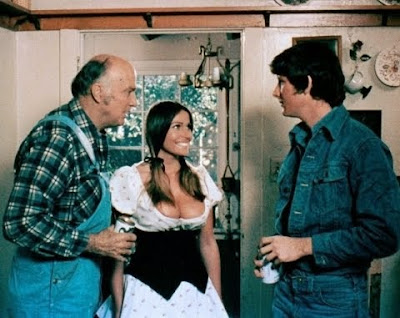River's Edge
The image has never left me: a partially clad female corpse, sloppily obscured with dirt and leaves in a suburban California forest. I first saw it on the poster for writer Neal Jimenez's and director Tim Hunter's 1986 film RIVER'S EDGE. Eerily, it appeared to call out if you stared at it long enough. Like it wanted to tell the story, of what really happened, what brought her to this cold, windswept final resting place.
It really did happen. In 1981 in the central California town of Milpitas, a 14 year old girl named Marcy Renee Conrad was raped and murdered by Anthony Jacques Broussard, another teenager who ran in her circle. Broussard told the other members of his posse and even showed them the evidence. It would take a few days before the crime was reported. It was a chilling example of human indifference. Perhaps not maleovalence, but certainly a resigned, more passive evil. Perhaps it wasn't that simple.
Jimenez and Hunter fictionalize this story and examine the mess. They follow the blueprint of the true-life drama: Samson (Daniel Roebuck) kills Jamie (Danyi Deats) after she makes fun of him. He leaves her in the brush and then boasts of the deed to his friends. Their reactions are very mixed. Matt,(Keanu Reeves) is instantly troubled. It is primarily through his eyes that we examine this story. Layne (Crispin Glover, ideally cast),the wired, egotistical "leader" of the teens will become increasingly bent on covering up the crime, spouting continuously of terms like "loyalty" and code of honor. Ideas that are a bit bigger than his stalled adolescence can reconcile. The others in the group, such as Alissa (Ione Skye) are seen less clearly and their lack of reaction to this horror is certainly one of the core themes of the movie's sociology play.
But RIVER'S EDGE is not just a dour exercise. The raw materials here (true crime) might well have been mishandled and molded into yet another tawdry made-for-cable potboiler. Hunter was the correct person to realize this tale for the screen. In 1979, he co-wrote the trenchant, searing suburban teen drama OVER THE EDGE, a film that demands your attention. It wasn't the first film to soberly examine adolescent ennui, but it was and is one of the few non-documentaries about teenagers to dispense with stylistics and just cut to the marrow. RIVER'S EDGE is another such bit of cinema.
We meander around town with the main characters, observe how allegiances shift and the beginnings of a twitch of a conscience and responsibility emerge. Layne is unrepentent as he defends Samson to the end, but he would loudly and in your face argue that he is also being responsible, responsible to his friend, not ratting him out. Being a true friend, no matter what. Loyalty is a dynamic ideal to some, an unchanging constant to others. That theme is analyzed in virtually every scene. Matt is questioned by the police, his friends, his mother, his mother's deadbeat boyfriend. They all are amazed that someone could be so callous in the face of tragedy. Perhaps Matt is just adrift. Role models? None apparent, especially authority figures. The environment is far from nurturing. All the same, none of Matt's accusers are blameless or one dimensional, a credit to Jimenez's screenplay. It's a moral and literal mess, just like the case that inspired it.
Then there's Feck, played with gusto by the late Dennis Hopper. Feck is a local bohemian, a stuck-in-the-60s burnout (yes, ideal casting here too) who deals pot etc. to the group. Periodically, we see him interact with the main characters in ways that seem random, excuses for philosophical blathering and sometimes low humor. Feck has an inflatable sex doll for a companion, for example. Hunter never deliberately goes for a gag, but at times it is hard not to giggle. After seeing this a few times, the laughs subside and it all becomes very sad. Feck will also ultimately be quite vital as this story unfolds and concludes.
The tragedy in RIVER'S EDGE isn't presented with blunt force, but rather an ineffectual paralysis. Like watching a loved one drown, and perhaps not throwing out a life preserver, even as you clutch one in your hands. How and if you identify with these characters will vary, but as you watch you will wonder what you might've done, and how that decaying remnant of a young life might respond to your actions. This film remains disquieting after nearly 25 years.



Comments